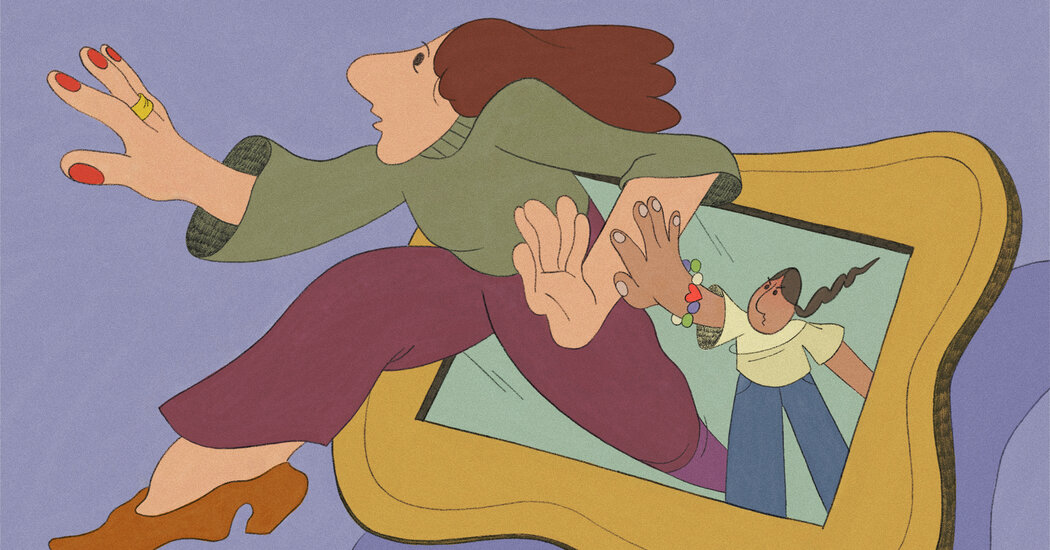
If you are asking for alone time in the reactionary way, Dr. Talib said, you can be specific about what you’re stressed about — a change at work or feeling overwhelmed by tasks at home — and be clear that that’s why you need time to clear your mind on your own. There’s also a difference between being alone and being lonely, she said, and that nuance is worth talking about with kids.
2. Alone time should be part of your family’s routine. Remember those godforsaken color-coded charts from the early Covid days? All the family dinners? “We talked about family routines” when the pandemic started, Dr. Talib said. “Why didn’t we talk about creating a routine of alone time?” Her kids, who are just 3 and 5, know she goes outside every day “to stare at a tree in the backyard.” She’s meditating, and they know not to interrupt “tree time” — and that it doesn’t last very long.
Lizzie Assa, the founder of The Workspace for Children, a website and Instagram account that helps parents teach kids to play on their own, has made sure her three kids, who are now 14, 11, and 8, have “quiet time” every day since they were toddlers. She said it took work, but the payoff is worth it. “Kids learn that they need downtime and they need alone time,” said Ms. Assa, who is a neighbor of mine in Maplewood, N.J. “Even today when they’re having a hard time or getting moody, I don’t have to say, ‘You need to get away from us,’” she said. “They say, ‘I’m going to my room.’”
If instituting daily quiet time feels like a nonstarter in your house, you can try other ways of building downtime into your kids’ schedules. Dr. Pooja Lakshmin, a frequent Times contributor and clinical assistant professor of psychiatry at the George Washington University School of Medicine, suggested I simply ask my daughter what she needs for self-care. You can do this with an 11-year-old, Dr. Lakshmin reminded me: “Ask, ‘What do you feel like you need? Do you want to read a book? Take a bath?’ Help them brainstorm too.”
3. It’s OK for your kids to be upset. If you don’t want to spend every waking hour with your children,“it’s developmentally appropriate for them to be insulted,” Dr. Lakshmin reminded me. “That’s normal. Your job as a parent is to help them understand that it’s OK to feel sad.” She went even further to say that sitting with that discomfort teaches kids that they can take care of themselves even if it makes someone else unhappy temporarily.
Dr. Damour put it even more plainly: “People deserve privacy, full stop.” Plus, she reminded me that I’m heading full throttle into the teen years, when my daughter will likely become “allergic” to me. I might as well appreciate her wanting to stay close while I still can.






